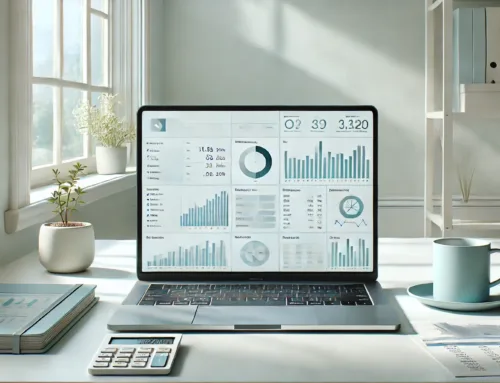Accounting is an essential aspect of managing a business, and the choice between cash and accrual accounting can significantly influence a company’s financial portrayal. This article delves into the major differences between cash and accrual accounting, two fundamental accounting methods that track income and expenses differently. While cash accounting offers simplicity by recording transactions upon the exchange of cash, accrual accounting provides a more comprehensive view by recognizing transactions when they occur, regardless of cash flow. Understanding the nuances of ‘cash vs. accrual accounting’ is pivotal for businesses to make informed financial decisions.
What is Accounting?
Accounting is a systematic and comprehensive process of recording, analyzing, and interpreting financial transactions. Its core purpose is to provide stakeholders, such as business owners, investors, and government entities, with critical financial information. This information is used to make informed economic decisions, ranging from day-to-day operations to long-term investments. In essence, accounting is the backbone of financial transparency in the business world, ensuring that all financial records are accurate, up-to-date, and in compliance with regulatory standards.
The Importance of Understanding Different Accounting Methods
Grasping different accounting methods is essential for any business or individual engaged in financial activities. Each method provides a unique lens through which to assess the financial health and performance of a business. For instance, cash accounting gives a real-time snapshot of financial status by recording transactions only when cash changes hands. In contrast, accrual accounting provides a more comprehensive view by recording earnings and expenses as they occur, regardless of cash flow. Understanding these methods enables businesses to:
- Make informed financial decisions.
- Comply with legal and regulatory standards.
- Prepare accurate financial reports for stakeholders.
- Strategically plan for taxes and future investments.
Moreover, the choice of accounting method can significantly influence the perception of a business’s financial health, impacting everything from creditworthiness to investment potential. Therefore, a deep understanding of accounting methods is beneficial and vital for success in the business landscape.
What is Cash Accounting?
Cash accounting is an accounting method where the business records transactions only when it exchanges cash, a practice that can impact small business cash flow solutions in Sydney. This method emphasizes managing the physical flow of cash into and out of the business. Its key features include simplicity and a direct reflection of cash flow. In this system, the business records revenues when it receives cash and records expenses when it pays them. This accounting method is most popular with small businesses and individuals since it is more practical and less time-consuming.
Advantages:
- Simplicity: Cash accounting is easy to implement and understand, making it ideal for small businesses with straightforward financial transactions.
- Clear Cash Flow Tracking: It provides a clear picture of how much actual cash your business has at any given time.
- Tax Benefits: With cash accounting, taxes are not paid on money that has yet to be received.
- Reduced Bookkeeping: Less tracking and paperwork are required since it only accounts for cash that has physically changed hands.
- Immediate Recognition of Expenses and Revenues: It allows for immediate recording of transactions, aiding in up-to-date financial status assessments.
Disadvantages:
- Lack of Financial Clarity: This method may not accurately represent the long-term financial health of a business because it doesn’t account for future payables or receivables.
- Ineffective for Larger Businesses: Cash accounting can be ineffective for larger businesses with complex transactions and those that extend credit.
- Difficulty in Tracking Long-Term Trends: Analyzing long-term financial performance and trends is challenging due to the immediate recognition of transactions.
- Potential Cash Flow Misinterpretation: Businesses might appear financially stronger when receivables are high, leading to a potential misinterpretation of financial health.
- Limited Use for Financial Planning: Since it does not account for all financial obligations, it offers limited utility in strategic financial planning and decision-making.
What is Accrual Accounting?
Accrual accounting records revenue and expenses when they are earned or incurred, not necessarily when the cash transaction takes place. This method offers a more accurate picture of a company’s financial health by including all financial commitments. It features key characteristics such as the matching principle, which aligns expenses with their related revenues in the same period they occur, and the recognition of accounts receivable and payables. Accrual accounting aligns well with Generally Accepted Accounting Principles (GAAP), leading to its widespread adoption among businesses needing detailed financial reporting.
Advantages:
- Provides a comprehensive view of a company’s financial health.
- Facilitates better financial planning and analysis.
- Enhances comparability between different financial periods.
- Ensures compliance with GAAP for publicly traded companies.
- Assists in more accurate revenue and expense matching.
Disadvantages:
- Can be complex and time-consuming to implement and maintain.
- This may lead to cash flow misinterpretation due to revenue recognition without cash receipts.
- Requires a thorough understanding of accounting principles.
- Potential for manipulation of financial statements by delaying or accelerating expenses.
- This can result in tax liabilities on income that hasn’t been received in cash yet.
Cash vs Accrual Accounting Differences
Cash vs. Accrual accounting, the primary distinction between them lies in the timing of when revenues and expenses are recognized. This fundamental difference leads to several key aspects that distinguish each method.
Recognition of Revenue and Expenses:
- Cash Accounting: In cash accounting, income is recorded only when cash is received, and expenses are recognized only when they are paid. This method offers a clear view of how much actual cash a business has at a given time.
- Accrual Accounting: Contrarily, accrual accounting recognizes income as soon as an invoice is issued, regardless of when the payment is received. Expenses are recorded when they are incurred, not necessarily when they are paid. This approach provides a more accurate picture of a company’s financial health over a period of time.
Impact on Financial Statements:
- Cash Accounting: Financial statements under cash accounting can present a skewed picture of a company’s financial position if significant revenues or expenses are pending.
- Accrual Accounting: In contrast, accrual accounting offers a more consistent and accurate depiction of a company’s finances, as it includes all earned revenues and incurred expenses within the reporting period.
Short-Term vs. Long-Term View:
- Cash Accounting: This method is more focused on the short-term cash flow of a business, making it suitable for small or simple businesses without significant inventory.
- Accrual Accounting: Accrual accounting, meanwhile, provides insights into the long-term financial health of a business, making it more suitable for businesses with larger operations or those with complex accounting needs.
Tax Implications
When discussing the tax implications of different accounting methods, it’s essential to understand how each approach affects your tax obligations. Both cash and accrual accounting have unique impacts on how and when taxes are calculated and paid.
Cash Accounting and Taxes
- Simplified Tax Calculations: Cash accounting simplifies tax calculations, as taxes are computed based on the actual cash flow.
- Deferral of Taxable Income: It allows businesses to defer taxable income. If you receive payment in the following tax year, you report it in that year.
- Potential for Higher Taxable Income in Certain Years: However, this method might lead to higher taxable income in years with substantial cash inflows.
Accrual Accounting and Taxes
- Taxation on Earned Income: Accrual accounting requires paying taxes on income as soon as it’s earned, regardless of when payment is received.
- Matching Income and Expenses: This method matches income with the expenses incurred in earning it, providing a more accurate picture of profitability.
- Possibility of Paying Taxes on Unreceived Income: It can lead to scenarios where taxes are due on sales before payments are received.
Both methods have their pros and cons in terms of tax implications. When adopting a tax accounting technique, businesses must evaluate cash flow, operation size and complexity, and long-term financial planning. It’s always advisable to consult with a tax professional to understand the full implications of each method for your specific business situation.
Conclusion
Cash vs. Accrual accounting, the choice between them is not just a matter of preference but a strategic decision impacting financial clarity and compliance. While cash accounting offers simplicity, accrual accounting gives a more accurate financial picture, which is crucial for growth and scalability. Ultimately, the decision rests on the specific needs and goals of your business. Have you considered which accounting method best aligns with your business’s future aspirations?
FAQs
1. What is the primary difference between cash and accrual accounting?
The primary difference lies in how they recognize income and expenses; cash accounting does it when money changes hands, while accrual accounting does it when transactions occur.
2. Which businesses typically use cash accounting?
Small businesses and sole proprietors often prefer cash accounting due to its simplicity and straightforward cash flow tracking.
3. Are there any specific benefits of accrual accounting for larger businesses?
Yes, accrual accounting offers a more accurate picture of a company’s financial health, which is essential for larger businesses with more complex operations.
4. Can a business switch from cash to accrual accounting?
Yes, businesses can switch, but it requires careful adjustment to ensure accurate financial reporting and compliance.
5. How does the choice of accounting method affect tax obligations?
The method influences when income and expenses are recorded, thus affecting the timing and amount of taxable income.





